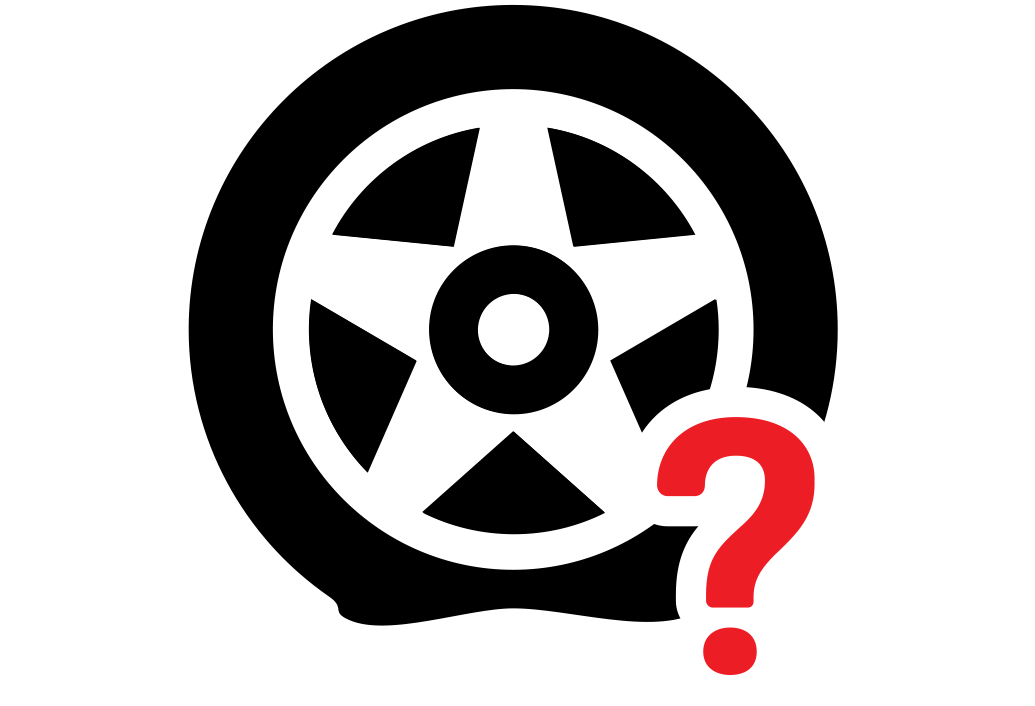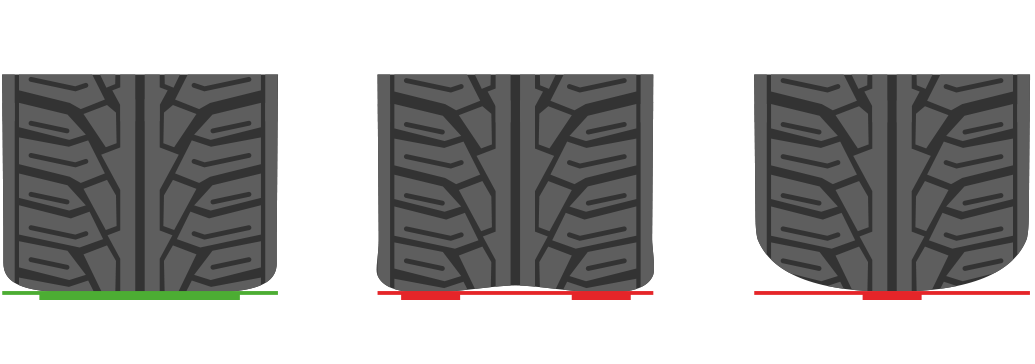
For your safety, comfort and the longevity of your tyres, it’s important that you check your tyre pressures regularly. Both under- and over-inflated tyres can affect your driving and your fuel consumption.
Can tyres really lose pressure overnight?

Yes. This is fairly common when there are big fluctuations between the daytime and nighttime temperatures. When the air in the tyres is hot, it expands and increases the pressure. When the air cools, and contracts, the pressure drops. The air can also expand when you drive at speed for an extended period of time.
What happens if my tyres are over- or under-inflated?
Your tyres are designed to give optimal contact with the road surface at a specific PSI (pound per square inch).
If your tyres are over-inflated you will have less rubber contact with the road and this will affect your safety and your mileage and performance. Your tyres will wear unevenly, making them dangerous for you to drive on.
If your tyres are under-inflated, they will increase your vehicle’s rolling resistance, increasing your fuel consumption. They will also reduce your vehicle control, make you more susceptible to punctures, increase your braking distance and increase your risk of skidding.
 How over- and under-inflation affects grip
How over- and under-inflation affects grip
Where do I find my correct tyre pressure?
You will find your tyre’s correct pressure (measured in PSI or BAR pressure) in your manufacturer’s handbook. You should also find a sticker on the inside of the driver’s door. If neither are obvious, you can enter your car’s registration plate into an online search tool.
We recommend you check your tyre pressures every two weeks and before and after any long journeys. Some cars have a dashboard warning light which will notify you when your tyre pressures drop.

How do I check my tyre pressure?
It’s best to check your tyre pressures when your tyres are cold – either first thing in the morning or when the car has been stationary for at least two hours. However, if your tyre pressure warning light has come on, or you’ve noticed your tyre is low, it is more important to attend to it straight away.
You can buy gauges and pumps to use at home, or you’ll find high quality air gauges/pumps in nearly all petrol stations.
Related Topics
-
 2023/03/31Tyre careTyre care: We explain what to look out for and the best way to clean your tyres before storage. Find out more here now!Read more
2023/03/31Tyre careTyre care: We explain what to look out for and the best way to clean your tyres before storage. Find out more here now!Read more -
 2023/03/31Tread depthIt’s important that you know how to check your tyres’ tread depth. After all, the tread depth affects handling and provides grip with the road surface. The deeper it is, the more grip you’ll have.Read more
2023/03/31Tread depthIt’s important that you know how to check your tyres’ tread depth. After all, the tread depth affects handling and provides grip with the road surface. The deeper it is, the more grip you’ll have.Read more -
 2023/03/31Ten things to keep in the carAs well as carrying a winter emergency kit, pack some other little extras to make life easier.Read more
2023/03/31Ten things to keep in the carAs well as carrying a winter emergency kit, pack some other little extras to make life easier.Read more